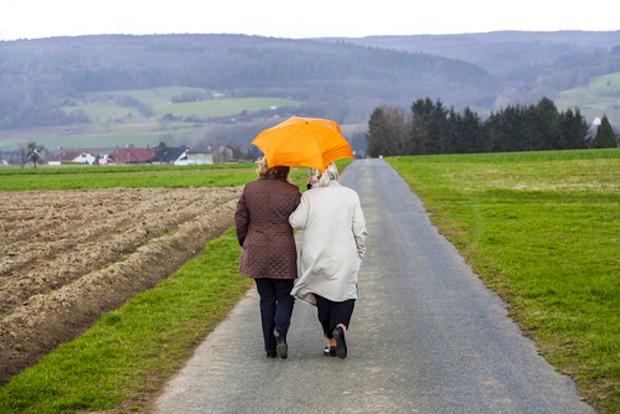Ever been in a position when you needed someone to cover for you? To do something you should have done yourself but, for whatever reason, could not? Of course you have! We all have.
Perhaps you planned to bring a sick friend some soup, but asked someone else to deliver it for you because you got too busy to finish the good deed. Maybe you arranged for someone else to take care of your kids for a while because you were delayed.
In those cases, someone covered for you, which is great, but should you feel bad because you didn’t take care of the task yourself? Or could you allow that you really did take care of it, because you arranged for it to get done? It probably depends on how the person who covered for you approached their task. And it really all comes down to one word: empathy.
Helping each other accomplish what we cannot otherwise accomplish alone is the power of empathy.
What does it mean tell someone, “I’ve got you covered”? To stand in for them? To be, as the philosophers say, their agent? It means that when the agent acts on your behalf, it is as if you did the act yourself, and yes, that is possible.
I know that people are not simply interchangeable, and that each of us has our own unique presence which is truly irreplaceable.? But I also know that we can cover for each other, be there for each other, and help each other accomplish what we cannot otherwise accomplish alone. That’s the power of empathy.
If, when we cover for each other in any given situation, we act not as mere “stand-ins” or placeholders, but as if we’re the one who sent for us – if we take the task at hand as seriously as the sender would, if we treat that sick friend as they would, or care for their kids as they would – then in a very real sense we bring the sender into the room with us, and those friends and/or children can actually feel that they’ve been cared for not only by us, but by the ones who asked us to “cover for them.”
Empathy is the means through which we extend each other’s ability to be present in more places and situations than would otherwise be possible. Empathy is the way we prove that with the right emotion and intention, we can help each other do what’s otherwise impossible, i.e., be two places at one time. How cool is that?

Listed for many years in Newsweek as one of America’s “50 Most Influential Rabbis” and recognized as one of our nation’s leading “Preachers and Teachers,” by Beliefnet.com, Rabbi Brad Hirschfield serves as the President of Clal–The National Jewish Center for Learning and Leadership, a training institute, think tank, and resource center nurturing religious and intellectual pluralism within the Jewish community, and the wider world, preparing people to meet the biggest challenges we face in our increasingly polarized world.
An ordained Orthodox rabbi who studied for his PhD and taught at The Jewish Theological Seminary, he has also taught the University of Pennsylvania, where he directs an ongoing seminar, and American Jewish University. Rabbi Brad regularly teaches and consults for the US Army and United States Department of Defense, religious organizations — Jewish and Christian — including United Seminary (Methodist), Yeshivat Chovevei Torah (Modern Orthodox) Luther Seminary (Lutheran), and The Jewish Theological Seminary (Conservative) — civic organizations including No Labels, Odyssey Impact, and The Aspen Institute, numerous Jewish Federations, and a variety of communal and family foundations.
Hirschfield is the author and editor of numerous books, including You Don’t Have To Be Wrong For Me To Be Right: Finding Faith Without Fanaticism, writes a column for Religion News Service, and appears regularly on TV and radio in outlets ranging from The Washington Post to Fox News Channel. He is also the founder of the Stand and See Fellowship, which brings hundreds of Christian religious leaders to Israel, preparing them to address the increasing polarization around Middle East issues — and really all currently polarizing issues at home and abroad — with six words, “It’s more complicated than we know.”

